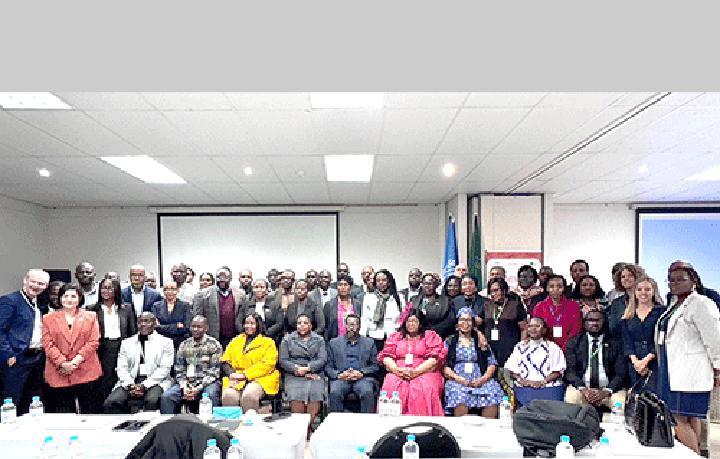Africa-Press – Namibia. Africa may have won the battle for political freedom, but it is still struggling with economic liberation, largely due to its continued defence of artificial borders that promote competition instead of unity among African countries.
National Assembly Deputy Speaker Phillipus Katamelo, said this when he addressed participants during the Namibia Parliamentary Green Investment Dialogue that took place over the weekend in Walvis Bay.
The conference, supported by the Green Climate Fund (GCF), the Climate Parliament, and the United Nations Industrial Development Organisation (Unido), brought together members of parliament from Botswana, Kenya, Namibia, Rwanda, Zambia and Zimbabwe, along with investors, guarantors and financial experts.
It forms part of the Parliamentarians for Climate Finance project, which supports 15 African countries — including Côte d’Ivoire, Djibouti, Ghana, Guinea, Nigeria, Senegal, Seychelles, Sierra Leone, Tanzania and Uganda — in mobilising climate finance for renewable energy and green industrialisation.
Katamelo urged African leaders and policymakers to embrace a spirit of solidarity and mutual learning, saying it is time to change attitudes toward the development of the continent by working together on collaborative solutions that prioritise sustainable growth.
He observed that African countries are unknowingly still defending the legacy of the Berlin Conference of 1884 — the same conference that carved up the continent and left it with artificial borders still fiercely protected today.
“Instead of breaking free, we hold on to these divisions, letting them weaken our unity and stall our progress. If we don’t change this mindset — if we don’t learn to complement and uplift each other — Africa’s dream of true economic emancipation and climate resilience will remain out of reach. It’s time to stop looking outside for answers and start building success from within our own borders,” the deputy speaker said.
He reminded delegates that Africa was once united by the fight against colonialism, with leaders like Julius Nyerere and Kwame Nkrumah giving the continent a shared identity.
However, he said, post-independence Africa failed to collectively continue the fight for economic emancipation.
He pointed out that although African countries often criticise the colonial borders drawn during the Berlin Conference, they now fiercely defend those same lines.
“If we don’t change that attitude, yes, competition is good, but it must have a purpose. If we fail to recognise each other’s value and complement our diverse strengths, then we are unknowingly defending the Berlin Protocol. We turn into competitors and reinforce boundaries that are not conducive to the united Africa we need to sustain,” he said.
He said Africa cannot grow if countries continue to compete instead of supporting one another. He also stressed the need to build regional economies that produce and consume locally.
“We produce what we don’t consume, and import what we already have. That cycle must change. Africa must learn to complement one another — not compete,” he said.
Katamelo also called on African leaders to learn from each other instead of always looking abroad.
“We always look at Singapore or Malaysia as success stories. Right here in Africa, Botswana has built strong reserves. Tanzania has managed to unite different religions and regions. These are lessons we ignore,” he said.
For More News And Analysis About Namibia Follow Africa-Press






